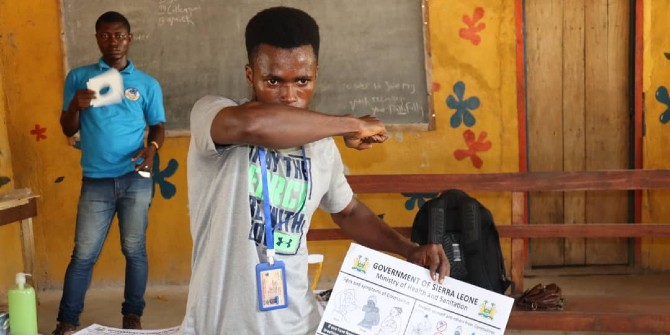The pandemic has given governments a reason to award big contracts to domestic businesses, rather than opening them up to foreign firms. Erica Bosio (World Bank) looks at some examples.
Public procurement is an $11-trillion-dollar industry. Its main purpose is to award timely and cost-effective contracts to contractors, suppliers and service providers for the provision of goods, works and services of high quality. But COVID-19 has given governments an incentive to favour domestic businesses over foreign competitors, especially as governments’ measures shift from company-specific to industry-wide.
From the French government’s assistance to Renault, to the Italian government’s €6 billion for FIAT and the Indonesian government’s multi-million dollar help for its largest power utility, the early stage of the pandemic was marked by company-specific aid.

As the huge impact of the pandemic became clearer, public procurement rules started to be used to support domestic enterprises. In addition to tax deferrals, tax rate cuts and the extension of government guarantees for business loans, domestically-oriented procurement is increasingly used as part of emergency response and recovery packages. The reason lies in its immediate effect and straightforward application. By changing the rules, public money that would anyway be flowing to businesses favours domestic producers, with immediate effect.
The Beijing city government, for example, amended its procurement procedure to give a discount of 10% on the price of the product/services/works granted by local companies, thus favouring domestic producers. Israel is another country contemplating the use of procurement rules to encourage contracting with domestic producers. Prime Minister Binyamin Netanyahu’s directive encourages government procurement of locally-made products.
The European Union is preparing a series of measures to favour European firms that compete for public contracts with subsidised foreign firms, mostly to address China’s growing economic influence in the bloc. Any financial contribution by a government or public body of a non-EU state is considered a subsidy, including interest-free loans, unlimited guarantees, grants, capital injections, preferential tax treatments and tax credits. This measure will tilt the procurement field in favour of EU firms.
Procurement rules can be further targeted to boost domestic firms in specific sectors. Russia’s recovery plan is a good example: public procurement is refurbished to promote domestic vehicle manufacturers. The Russian government has allocated 25 billion roubles to the Ministry of Industry and Trade for carrying out a number of measures to support Russian manufacturers. Five billion roubles will go towards the procurement of ambulance vehicles, in a public auction in which only Russian manufacturers can participate. An additional 4.5 billion roubles is used for subsidised loans to procure vehicles for provincial and federal government offices. Again, foreign producers need not apply.
The goal is to promote certain sectors in an attempt to gain technological advantage over foreign competitors, or retain and create new jobs. A policy using procurement rules could make this effort sector-wide, though it would raise issues with WTO rules.
These considerations are known to governments in large emerging economies and elsewhere, yet the COVID crisis is encouraging them to support domestic enterprises. With limited fiscal space in many countries, the use of already-committed public resources becomes more targeted. Procurement is an easy way to do that.
This post represents the views of the author and not those of the COVID-19 blog, nor LSE, nor the World Bank.





